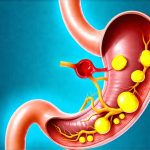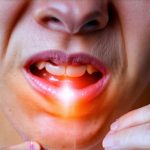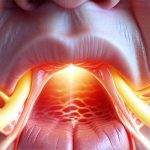Acid reflux, also known as heartburn, is a surprisingly common experience for many people. That burning sensation in your chest after a meal, the sour taste at the back of your throat – these are telltale signs that stomach acid has crept upwards into the esophagus. While often attributed to specific foods or large meals, the truth is that when you eat and how you start your day can play a significant role in triggering those uncomfortable symptoms. Many individuals unknowingly set themselves up for acid reflux with their morning routines, without realizing that seemingly harmless habits could be contributing to the problem. Understanding the connection between daily practices and gastroesophageal reflux disease (GERD) is the first step towards finding relief and improving overall digestive health.
It’s crucial to remember that acid reflux isn’t just about what you eat; it’s about how your body processes what you eat, and a large part of that process begins with your morning routine. The position you sleep in, how quickly you get out of bed, the beverages you consume first thing, even the level of stress you experience – all these factors can influence acid production and esophageal function. This article will delve into how specific morning habits might be triggering your reflux, and offer practical suggestions for creating a more gut-friendly start to your day. We’ll explore both common culprits and lesser-known influences, aiming to empower you with knowledge to proactively manage this often frustrating condition.
The Role of Food & Drink in Morning Reflux
A significant portion of morning acid reflux cases can be directly linked to what we consume – or don’t consume – upon waking. Many people reach for coffee, tea, or juice as their first act of the day, and while these beverages provide a welcome energy boost, they can also exacerbate heartburn symptoms. Coffee, in particular, is known to relax the lower esophageal sphincter (LES), the muscular valve that prevents stomach acid from flowing back up into the esophagus. Similarly, acidic juices like orange or grapefruit juice can irritate the esophageal lining, increasing sensitivity and triggering discomfort. Even seemingly benign choices like milk can sometimes contribute; while it may offer temporary relief by neutralizing stomach acid, it can also stimulate more acid production later on.
Beyond beverages, breakfast itself can be a major factor. Foods high in fat, for example, take longer to digest, increasing the pressure within the stomach and making reflux more likely. Common breakfast staples like bacon, sausage, pancakes with syrup, or even a full English breakfast are prime examples of meals that might trigger symptoms. The same applies to spicy foods which can irritate the esophagus directly. A quick, on-the-go breakfast consumed rapidly often lacks proper chewing, increasing the burden on digestion and potentially leading to acid reflux. Prioritizing mindful eating, even in the morning, is a crucial step towards minimizing discomfort.
Finally, skipping breakfast altogether isn’t necessarily beneficial either. While it might seem logical to avoid triggering symptoms by simply not eating, an empty stomach can actually increase acid production as the body anticipates food intake. This excess acid then has nothing to digest and can more easily flow back up into the esophagus. Therefore, a balanced, reflux-friendly breakfast is often preferable to skipping it entirely. It’s also helpful to understand can your gut heal while managing dietary choices.
Optimizing Your Morning Meal
Creating a reflux-conscious breakfast doesn’t mean sacrificing taste or enjoyment; it simply requires making informed choices. Here are some strategies for building a gut-friendly morning meal:
- Choose low-fat options: Oatmeal, whole-wheat toast with avocado, and yogurt (unsweetened) are good starting points.
- Prioritize lean protein: A small portion of eggs or turkey bacon can provide sustained energy without excessive fat content.
- Limit acidic foods & beverages: Opt for herbal tea instead of coffee, and consider swapping orange juice for water infused with cucumber or berries.
- Eat slowly and chew thoroughly: This aids digestion and reduces the strain on your stomach.
A helpful technique is to keep a food diary for a week or two, noting what you eat for breakfast and any associated symptoms. This can help identify specific trigger foods that need to be avoided or modified. Remember to also note when you are experiencing reflux – is it immediately after eating, an hour later, or even several hours after? This timing can provide valuable clues about the underlying cause. If you struggle with acid production, consider learning is low stomach acid a factor for you.
The Impact of Hydration & Timing
Hydration plays a vital role in overall digestive health and can significantly impact acid reflux symptoms. Drinking water throughout the day helps dilute stomach acid and promotes proper digestion. However, how you drink during your morning routine is also important. Gulping down large quantities of water quickly can increase pressure within the stomach and potentially trigger reflux. Instead, sip water slowly and consistently throughout the morning.
Timing your breakfast relative to waking up is another factor to consider. Eating too soon after waking up, especially if you haven’t fully woken up or are still lying down, can increase the risk of acid flowing back into the esophagus. Allowing at least 30-60 minutes between waking and eating allows your digestive system to prepare and reduces the likelihood of reflux. Similarly, avoid lying down immediately after breakfast – give your stomach time to begin digesting before reclining. Waiting a short period post-breakfast can make a substantial difference. You might also find it helpful to learn morning beverages that are gentler on the gut.
Stress & Morning Reflux: A Hidden Connection
Stress is often overlooked as a contributor to acid reflux, but it can play a surprisingly significant role, particularly in the morning. When we’re stressed, our bodies release cortisol, a hormone that can increase stomach acid production and relax the LES, making reflux more likely. The pressure of starting the day, concerns about work or personal life, even simply feeling rushed can all contribute to stress levels, triggering digestive issues. Many individuals experience heightened anxiety in the mornings, anticipating a busy or challenging day ahead.
This connection explains why some people find their acid reflux symptoms are worse on Mondays or during particularly stressful periods. The nervous system is highly interconnected with the digestive system – often referred to as the “gut-brain axis”– and emotional states can directly impact gastrointestinal function. Incorporating stress-reducing practices into your morning routine can therefore be a powerful way to manage reflux.
- Mindfulness & Meditation: Even 5-10 minutes of mindful breathing or meditation can help calm the nervous system and reduce cortisol levels.
- Gentle Exercise: Light stretching or yoga can release tension and promote relaxation.
- Gratitude Practice: Taking a few moments to reflect on things you’re grateful for can shift your mindset and reduce stress.
By addressing both the physical and emotional aspects of acid reflux, you can create a more holistic approach to managing symptoms and improving overall well-being. Remember that consistent routines are key — establishing these practices as part of your daily morning ritual will yield the greatest benefits over time. For those looking to structure their day for optimal gut health, creating a morning routine can be incredibly beneficial and even help with gut motility. If you are looking for more comprehensive guidance, a 7-day GERD diet plan may provide additional support.


















